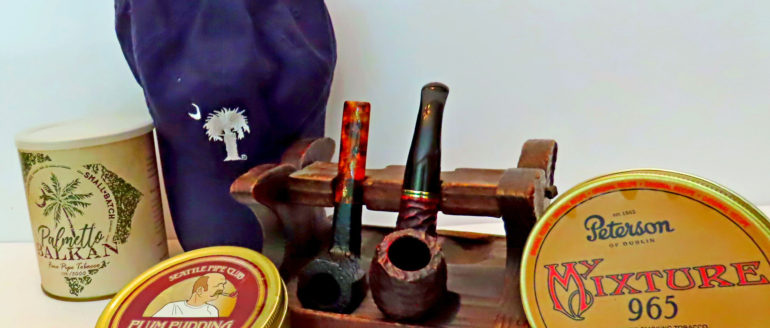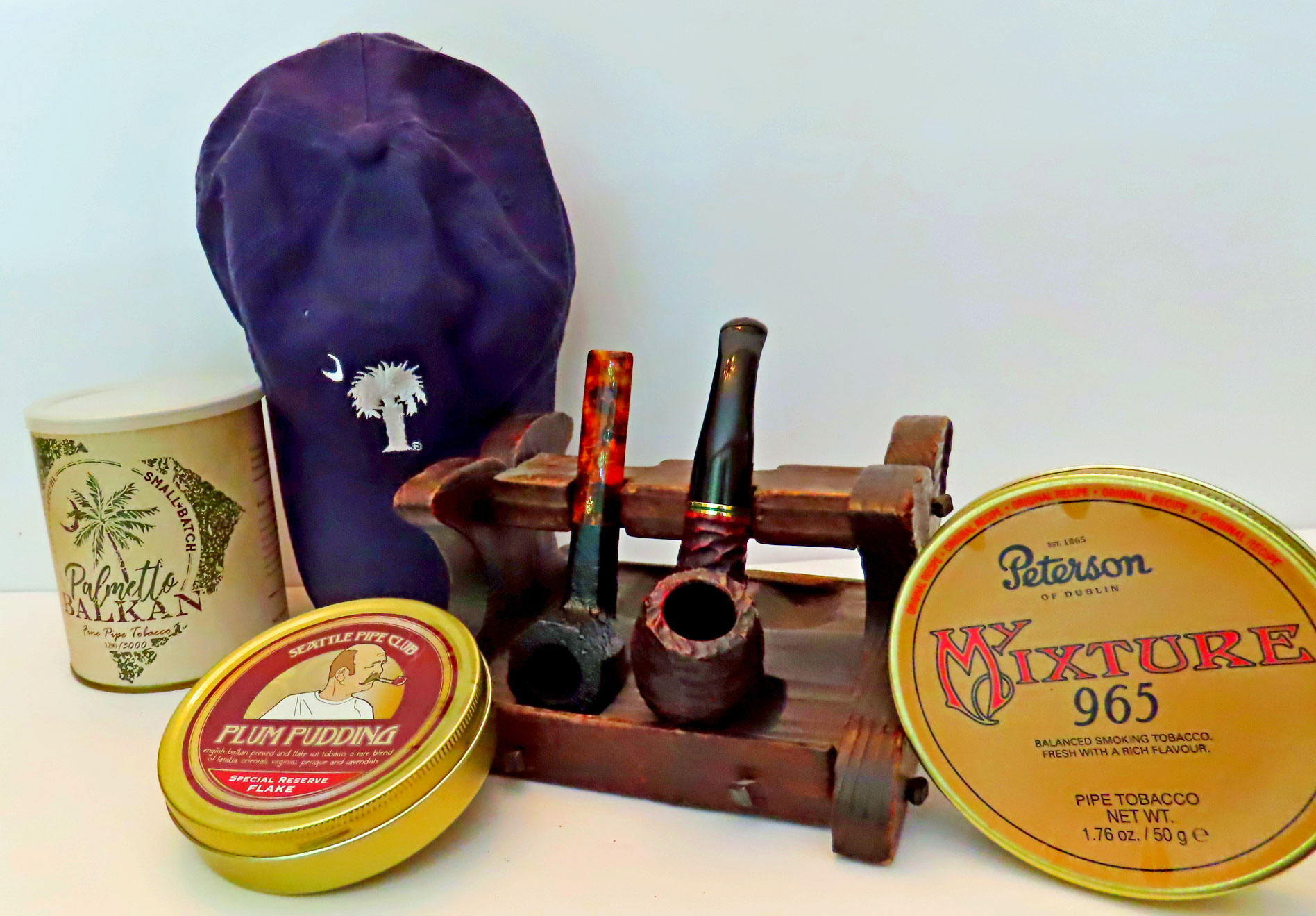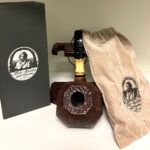
We are not in Kansas any longer, Toto. No. We are in Tobaccoland, nirvana, land of honey and Virginia, latakia, perique, and cavendish blended to a taste of the extraordinary.
No, the Pundit hasn’t quite lost all of his faculties yet. He just puffed some of the C&D latest by the genius blender Jeremy Reeves, his Palmetto Balkan.
If you haven’t grabbed a tin, you owe it to yourself to give it a go. It is a mite pricey, but ever so worth the price.
Why is Pundit so over the moon? This is a superb blend, something out of the old school if you recall the old-time Balkans of yesteryear.
Some of us old-time coots grew up on Balkan Sobranie. It was on the counters and shelves in about every bricks-and-mortar pipe store on Earth. There have been many an imitation, but few could match it.
Now, I’m not saying Palmetto Balkan is an exact, leaf for leaf match. It just takes me back to the days when leisure was a pipeful of Balkan Sobranie, a good book, and time.
A wonderful review of the new blend is found in Smokingpipes.com’s Chuck Stanion’s “Tobacco Talk” May 13.
In his usual literary and enlightening prose, Chuck explains Cornell & Diehl’s latest small-batch creation from the fertile mind of Jeremy Reeves, head blender. Or should we say, virtuoso blender at C&D, or anywhere else.
Reeves and C&D stuck to their sources in South Carolina in this production. Having spent a great deal of time near the Laudisi grounds during former vacations to the Grand Strand Low Country, and having attended college in South Carolina, my memories of the Palmetto State wear fondly in my heart.
Now a quick trip into nostalgia for a bit of tobacco land backstory.
Several years ago, I had the opportunity to visit a fairly large Tennessee tobacco farm. Was that ever an enlightening event!
The farmer who owned the acreage told me in that interview years ago that he wasn’t in tobacco farming for the money. “It gets into your blood,” he said.
He grew up tobacco farming with his father and other family members. And in that day, tobacco was a significant portion of the family budget.
But the work was neither easy nor short. A day went from before sunrise to after sunset. Lots of hands-on labor.
Not until mechanization arrived, did tobacco farming become somewhat easier. Tractors and planters lessened some of the sweat, much better than urging a stubborn mule to plow long furrows.
After all the demanding work of planting, harvesting, curing in his tobacco barn, and then transporting to a fall tobacco auction, the farmer said he made maybe enough money to give his family a good Christmas. Or pay down credit on equipment and taxes on the farmland that produced the tobacco.
Remembering this event has gotten the Old Pundit to daydreaming about our tobacco blends today and how it all comes together for us pipe smokers.
It’s not an easy process from field to curing to aging, blending, and then to the tin.
After harvesting the tobacco leaf, the farmer (whose name has been lost in the mists of time) then had to bundle the leaf and haul it to the nearest auction barn.
And like many other parts of our past, the tobacco auction barn has practically faded from the rural scenery, at least in Tennessee’s tobacco lands.
So isn’t it a nice release to push aside all the chaos and calamity in the world today by just pulling out your pipe and loading with your favorite blend. Puffing on the good old times.
Seems as if many of us are so submerged today in technology and hurly-burly that we sometimes fail to see our true realities.
What brought me to this is looking at some of the old pipe smokers of the past. They had to deal with their everyday problems but hovering in the smoke plumes was a relief.
Maybe we need more pipe smokers today, puffing away our troubles.
I digress, of course. But with all the worldly problems, we need more pipes and tobacco, or as Mr. Einstein said: ”I believe that pipe smoking contributes to a somewhat calm and objective judgment in all human affairs.”
Amen and amen.
And now a couple of important dates of pipe smokers of the past:
Shelby Foote, born Nov. 17, 1916, in Greenville, Miss., and died June 27, 2005, in Memphis, Tenn. Shelby was best known for his three-volume work, The Civil War: A Narrative, a deeply-researched and 20-year writing effort of the American Civil War.
And, ahem, the Pundit purchased the volumes as they were published.
I like this quote from Shelby that I believe is still relevant. It reminds me of the time he told me in an interview that unless we as Americans understand fully what took place before and during the Civil War, we can’t understand our country:
The Civil War defined us as what we are and it opened us to being what we became, good and bad things… It was the crossroads of our being, and it was a hell of a crossroads—Shelby Foote.
And just to emphasize the work that went into his narrative of the great war, he wrote it out in longhand—no typewriter, no computer. He later typed the manuscript and never owned a computer.
And one more great Canadian-American writer and pipe smoker of the past:
Saul Bellow was born June 10, 1915, in Lachine, Quebec, and died April 5, 2005, in Brookline, Mass.
He was a three-time National Book Award winner, a Pulitzer Prize recipient, and a Nobel Prize in Literature winner.
One of Bellow’s finest quotes:
The best and purest human beings, from the beginning of time, have understood that life is sacred—Saul Bellow.
A Pipe Pundit Parting Thought: Please remember our veterans this month. D-Day was 78 years ago, a day that changed the face of World War II and the world.

















